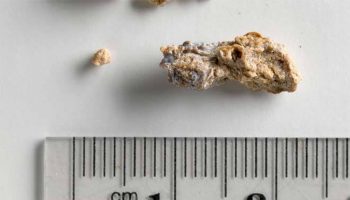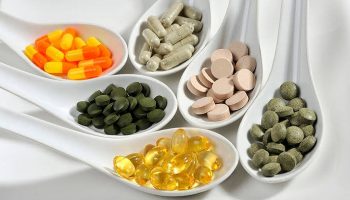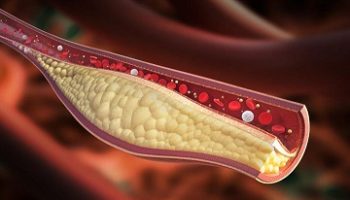ADDRESSING PMS (post menstral syndrome)
I’ve had and still have plenty female friends with terrible cases of PMS. In fact it plagues the female folk and often makes them terrifying to we men. What causes PMS? Are there factors that could be brought under our control to see it tamed and possibly a thing of the past? Keep reading and find out.
PMS, by definition, refers to a wide range of symptoms that start during the second half of the menstrual cycle and can include headache, dizziness, cramps, irritability, bloating, breast tenderness, nausea, vomiting, food cravings or aversions, weight gain, irritability, depression, anxiety and fatigue. These symptoms usually occur before menses begins and subside gradually at the onset of the period. Other menstrual symptoms like abdominal cramping and heavy bleeding can occur during menses.
While a variety of factors can influence a woman’s symptoms during this time (including genetics, nutrition, medications, etc), it is largely controlled by hormones (usually imbalances and getting hormones in proper balance can go a long way toward reducing symptoms. The monthly fluctuation of estrogen and progesterone (and other hormones like FSH and LH) largely controls a woman’s cycle and there are theories that these hormones can interact with certain brain chemicals, creating real symptoms during these times. Optimally, these hormones are in balance and working correctly, and this interaction might cause little to no discomfort or symptoms, but if these hormones are out of balance, a variety of these symptoms can occur.
Dietary Modifications:
Avoid Polyunsaturated Omega-3 fats in Large Amounts:
Note the ” LARGE AMOUNTS”
About 97% of the fat in the human body is saturated and monounsaturated fat, with only 3 % Polyunsaturated fats. Half of that three percent is Omega-3 fats, (the other half is Omega-6 fats) and that balance needs to be there. Vegetable oils contain very high levels of polyunsaturated fats, and these oils have replaced many of the saturated fats in our diets since the 1950s.
(adsbygoogle = window.adsbygoogle || []).push({});
The body needs fats for rebuilding cells and hormone production, but it has to use the building blocks we give it. When we give it a high concentration of polyunsaturated fats instead of the ratios it needs, it has no choice but to incorporate these fats into our cells during cell repair and creation. The problem is that polyunsaturated fats are highly unstable and oxidize easily in the body (if they haven’t already oxidized during processing or by light exposure while sitting on the grocery store shelf). These oxidized fats cause inflammation and mutation in cells.
In arterial cells, these mutations cause inflammation that can clog arteries. When these fats are incorporated into skin cells, their mutation causes skin cancer. (This is why people often get the most dangerous forms of skin cancer in places where they are never exposed to the sun, but that is a topic for another day!)
When these oils are incorporated into cells in reproductive tissue, some evidence suggests that this can spur problems like endometriosis and PCOS. In short, the body is made up of saturated and monounsaturated fats, and it needs these for optimal health.
Strive to avoid fats like Vegetable oil, peanut oil, canola oil, soybean oil, margarine, shortening or other chemically altered fats. Choose fats like coconut oil, real butter, olive oil (don’t heat!) and animal fats (tallow, lard) from healthy sources instead and eat lots of high Omega-3 fish.
Eat enough of the right kinds of fats:
Eating fats like quality organic meats, butter, tallow, coconut oil, ghee, olive oil, etc can help boost proper hormone production. While the wrong kinds of fats (see above) can interfere with hormone production, eating enough of the proper fats can really help!
“Coconut Oilis amazing for hormone health. It provides the necessary building blocks for hormone production, can assist weight loss, reduce inflammation, and even has antimicrobial and antibacterial properties.
If you really need hormone help, aim to consume 1/4 cup of added coconut oil a day.
Avoid Chemicals in Food and Household:
Toxins found in processed foods, pesticides, plastics, household chemicals and even mattresses can contain hormone disrupting chemicals that mimic hormones in the body and keep the body from producing real hormones. Things like hormonal birth control can (obviously) do the same thing.
If you have hormone imbalance or are struggling to get pregnant, avoiding these toxins is very important. Cook in glass or non-coated metal pans (no non-stick or teflon) and avoid heating or storing foods in plastic. Find organic produce and meat whenever possible and don’t use chemical pesticides or cleaners.
Avoid Inflammatory Foods:
Foods like grains, dairy and vegetable oils can create inflammation in the body and can exacerbate hormonal problems. The degree that these foods will affect the body varies by person, but there are several cases where severe hormonal symptoms were resolved by just adopting a grain free and dairy free diet. Especially for the first few months, focusing on foods like home made bone broths, soups, grass fed meats, and healthy fats (butter, coconut oil, tallow, ghee, etc) will help the body rebuild and reduce inflammation.
Helpful Supplements
Vitamins for PMS
There are quite a few studies suggesting that some PMS symptoms are your body’s way of telling you itneeds more of certain vitamins and minerals. Add these vitamins to your daily routine to help curb your PMS symptoms.
Vitamin D:
A pre-hormone is supportive of hormone function. Bestobtained from the sunif possible, or from a Vitamin D3 supplement or fermented Cod Liver Oil. Make sure not to get too much, and optimally, get Serum Vitamin D levels checked to monitor levels.
Calcium:
PMS symptoms and calcium deficiency symptoms have a lot in common. Make sure you’re getting1200 milligrams of calcium a day from food sources or from supplements.
Vitamin E:
Tryto take 400 IUs of vitamin E per day to alleviate PMS symptoms.
Magnesium:
Magnesium supports hundreds of reactions in the body and often contributes to better sleep (which is great for hormones!)Do you retain water during your period? 200 milligrams of magnesium daily can make a difference!
Vitamin B-6:
That magnesium will pack an extra punch if you pair it with vitamin B-6. Take 100 milligrams per day to not only give your magnesium supplement a boost but to help fight PMS-related depression.
Fermented Cod Liver Oil:
Provides many of the necessary building blocks for hormone production including Vitamins A, D, and K. It also is a great source of Omega-3s and beneficial fats.
Gelatin:
Gelatin is a great source of calcium, magnesium and phosphate. It supports hormone production and digestive health and helps sooth inflammation, especially in joints.
Other Helpful Tips:
*Eat smaller, more-frequent meals to reduce bloating and the satiety.
*Limit salt and salty foods to reduce bloating and fluid retention.
*Choose foods high in complex carbohydrates, such as fruits, vegetables and whole grains.
*Choose foods rich in calcium. If you can’t tolerate dairy products or aren’t getting adequate calcium in your diet, a daily calcium supplement may help.
*Avoid caffeine and alcohol.
Incorporate exercise into your regular routine:
Engage in at least 30 minutes of brisk walking, cycling, swimming or other aerobic activity most days of the week. Regular daily exercise can help improve your overall health and alleviate certain symptoms, such as fatigue and a depressed mood.
Reduce stress:
Massages and other forms of relaxing activities such as yoga, strolls, hiking and vacationing can help curb stress.
Get plenty of sleep:
Practice progressive muscle relaxation or deep-breathing exercises to help reduce headaches, anxiety or trouble sleeping (insomnia).
Tags :
Home Remedies for PMS
previous article
WHATS SO GREAT ABOUT CHEESE?
next article
STAYING DRY TILL DAWN
The author Prince
Hi, I’m Prince.. a registered Dietitian, an avid reader and a passionate writer. I hope you enjoy my articles as much as I enjoy writing them







